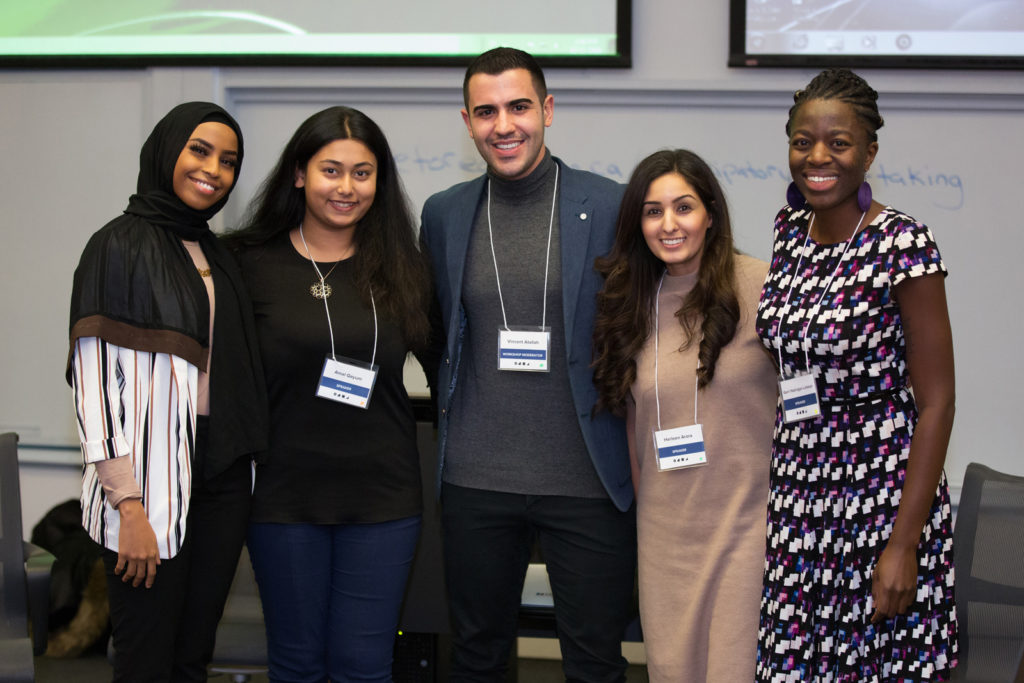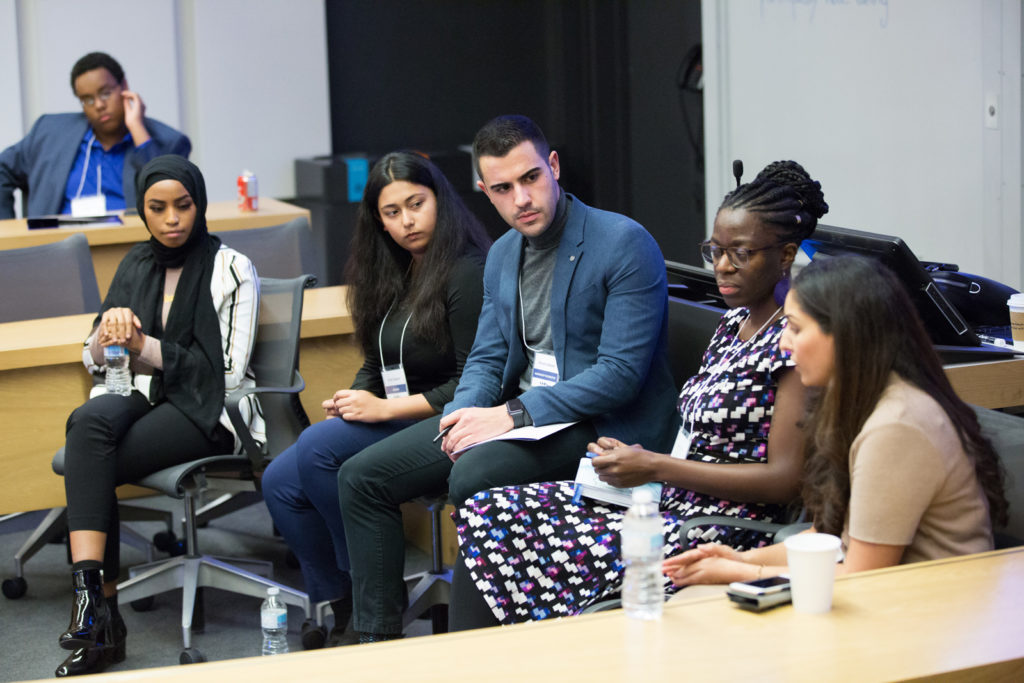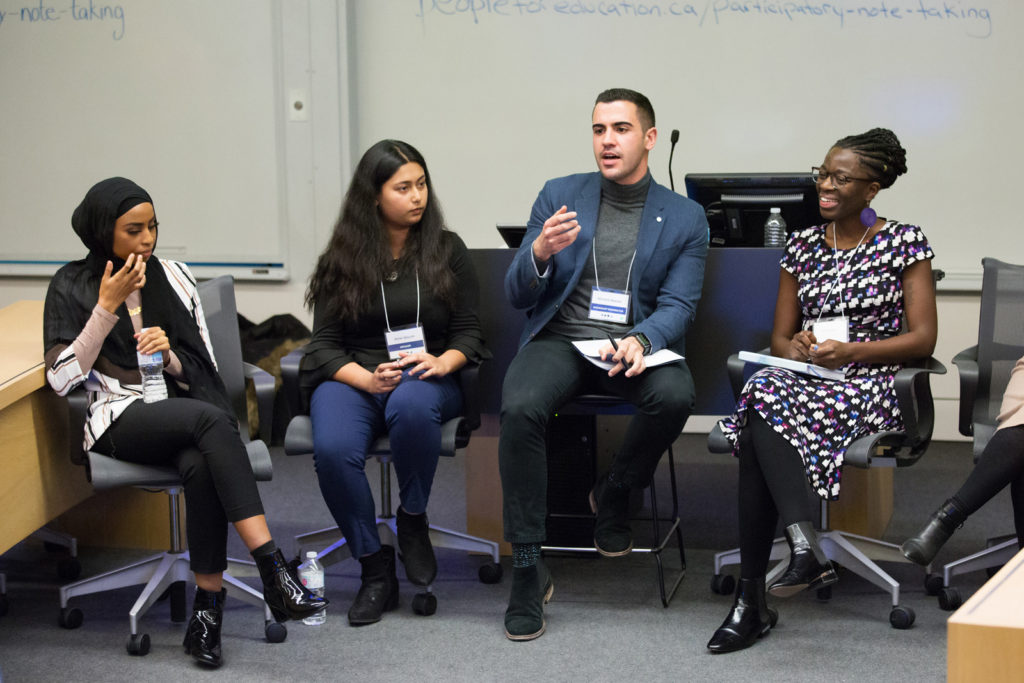Defining success: Views from the next generation
by Vincent Atallah, PFE board member and chair of our NextGen committee
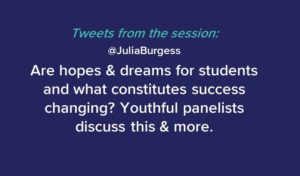
On November 10, 2018, four young professionals sat squarely in the middle of a room full of educators, administrators, researchers, and parents. Each of these young professionals brought a unique perspective on how their experience in the public education system has shaped their understanding of what it means to succeed.
The panelists offered fresh ideas and viewpoints – viewpoints that we may not hear from the likes of life coaches, large companies, and even the school system itself. They emphasized that success will not and should not look the same for every student. It is the degree to which students are empowered and enabled to pursue their own vision of success that is significant. The panelists talked about how the definition of success is changing, even among students. Young people are becoming increasingly comfortable with the idea that they are unlikely to follow in their parents’ footsteps and commit to a single career, which in the past has been a hallmark of “success”.
After hearing the speakers’ perspectives on student success, the audience asked about practical strategies to support young people. One audience member asked “What can we do as parents to help our children succeed in the way they want to succeed?” The panelists talked about the value of co-curricular activities in developing self-awareness, self-confidence, and the discovery of one’s interests. They stressed that parents must be conscious of their own biases and perceptions of success, and be overtly supportive of their children’s evolving understanding of their interests.
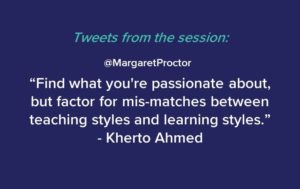 Throughout the conversation, the panelists brought to light the intersection of factors like race, socioeconomic disparity, and the need for the education system to reflect the students that it serves. In the words of Gerri Nakirigya Lutaaya, “The first thing young people want is just to feel like they belong in the classroom.”
Throughout the conversation, the panelists brought to light the intersection of factors like race, socioeconomic disparity, and the need for the education system to reflect the students that it serves. In the words of Gerri Nakirigya Lutaaya, “The first thing young people want is just to feel like they belong in the classroom.”
Similarly resounding were the panelists’ anecdotes of mentors, both within and beyond the school system, who helped propel them towards their version of success. One panelist recounted how one of her teachers would frequently check to make sure her students had eaten that day, that they were taking care of their mental and physical health; and would use nonverbal cues to know when to offer support.
In retrospect, the panel provided an honest viewpoint about where our education system still has work to do, but simultaneously gave clear strategies for working towards an equitable, supportive learning environment for our future global citizens.
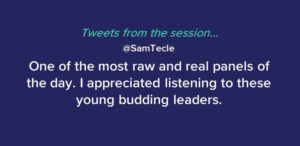
As the audience filed out of the conference room, it was clear that the speakers’ comments had resonated with them. Conversations expressing appreciation for the panelists, and for their refreshing, relevant perspectives, filled the air. This is an audience who can advocate for those perspectives – in their Parent Involvement Committees, their school staff meetings, or their ministry and private sector working groups. This panel clearly had an impact – an impact that may be difficult to measure, but one that is invaluable to catalyze.

